 On the morning of August 7th I found out that I was of interest to State Security. My neighbors in the area worriedly told me about two guys who looked like political police agents who were asking about me.
On the morning of August 7th I found out that I was of interest to State Security. My neighbors in the area worriedly told me about two guys who looked like political police agents who were asking about me.
In Cuba, when the Special Services officially cite you, it is almost always with the purpose of sending a message of fear. A programmed relentless pursuit is set in motion to discourage people from continuing the work they have been doing, whether it be as a dissident or journalist.
Generally speaking, when someone is involved with these struggles they try to turn them into a rat. If they see that you continue standing firm with your ideas, then the task becomes trying to destabilize your beliefs through the use of tricks.
They might pressure your family, or shamelessly harass them. To be under the magnifying glass of Cuban Counter-Intelligence is a clear sign that the work that you carry out worries them.
I am a man who writes. I record stories of the decadent society in which I live, and I write about my perception of the situation in Cuba. I have a blog, titled Desde La Habana (‘From Havana’), where I spit out what I am thinking.
I also write for the online journal known as El Mundo America, a Spanish site that has over 24 million readers. That is something that really bothers those Cuban Security hard-liners.
Being a journalist in a closed society is the task of either an adventurer or a lunatic. In Cuba, there is a law, known as the “Gag Law”, which allows the government to jail you for up to 20 years for the sole reason of writing what you think.
I’m not a special guy. I’m not a hero. Nor a martyr. I have fears and phobias. Fifteen years of writing as an independent journalist has made me a lone wolf. A paranoiac sniper of people who surround me.
I don’t trust anyone. So much sickening distrust eventually wears me out. It is product of the patient labor of intrigue and hate carried out by the political police on the island so that you will never feel sure of yourself.
Being a dissident or a journalist without a boss puts you in a perennial state of siege. It stresses you out. Mentally and physically. You constantly try to guard what you love the most: your family. For you know that they might, and will, attack you through them.
I will be 45 on August 15th. At this point in my life, I am sure of what I want. I do not believe that an official citation (which demands that I present myself before a military counter-intelligence unit on August 9th at 9 AM, before Colonel Enrique) will change my personal decision of writing my thoughts about life in Cuba.
I don’t keep any secrets. I have not committed any crimes. In the meantime, I will continue informing. I am a prisoner of my labor.
Iván García
August 8, 2010

 One of the mistakes most often made by those who say they care about Cuba is what could be defined as taking the part for the whole. A kind of geographical and ideological synecdoche, which makes them assume, when they use the term “Cuba,” that they understand it correctly.
One of the mistakes most often made by those who say they care about Cuba is what could be defined as taking the part for the whole. A kind of geographical and ideological synecdoche, which makes them assume, when they use the term “Cuba,” that they understand it correctly.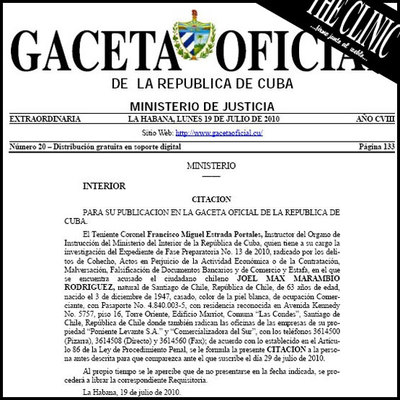
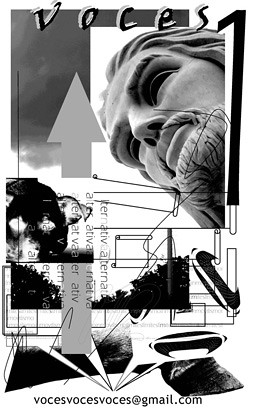
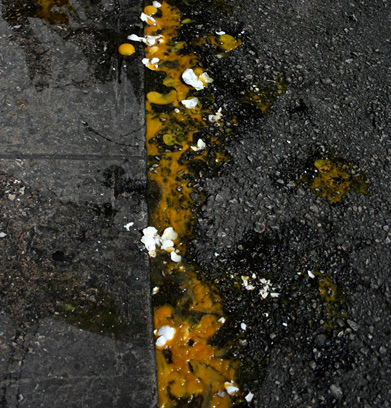
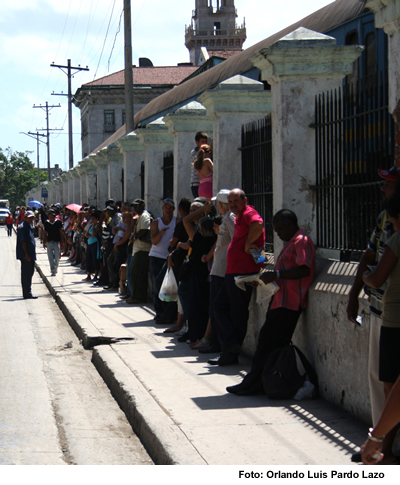
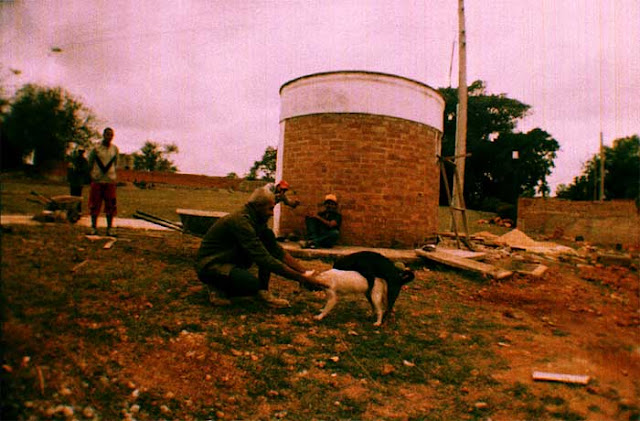


![el-gran-dictador-hynkel[1]](http://www.TranslatingCuba.com/images/miguel/el-gran-dictador-hynkel1-300x238.jpg)
 A Spanish friend of mine who has come twice to Cuba told me that she read the official press while in the airport, and according to that paper it makes it seem as if, despite all the problems, deficiencies, and tensions she witnessed when she met with a wide range of people, there are no problems in the island.
A Spanish friend of mine who has come twice to Cuba told me that she read the official press while in the airport, and according to that paper it makes it seem as if, despite all the problems, deficiencies, and tensions she witnessed when she met with a wide range of people, there are no problems in the island.